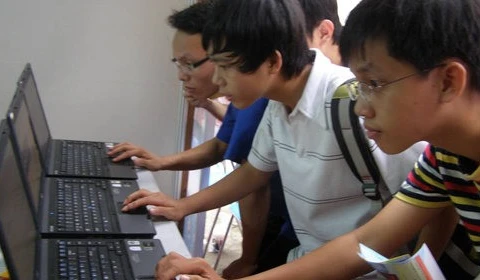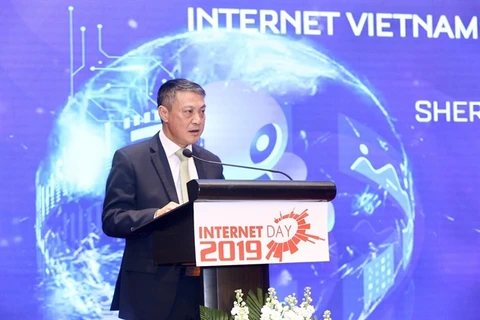Hanoi (VNA) - The Vietnam Internet Association hosted Internet Day 2020 on December 16, marking the 23rd year since Vietnam became part of the global internet network.
With the theme “Digital Transformation in Vietnam: From Aspiration to Reality”, the event’s discussions centred around Cloud Computing, 5G Services, e-Payment and Mobile Money, Blockchain, Free and Open-source Software (FOSS), and “Make-in-Vietnam” digital technologies, among others.
In June, the government adopted the National Digital Transformation Roadmap 2025 and vision towards 2030, which focuses on three pillars: e-Government, e-economy, and e-society.
Speaking at the event, Deputy Minister of Information and Communications Nguyen Huy Dung said 2020 marks the start of national digital transformation. Vietnam must seize the opportunities to promote faster, stronger, and broader digital transformation, with governmental bodies, enterprises, and the community together becoming engaged, he said.
Vietnam is among the top 20 countries with the highest number of internet users, according to Chairman of the Vietnam Internet Association Vu Hoang Lien. Internet Day 2020 aims to help stakeholders translate digital transformation goals into reality, he added.
The UN’s e-Government Survey 2020, released in July, saw Vietnam score 0.66 on the e-Government Development Index (EGDI), higher than the Asian and global average. Its EGDI ranking moved up two places from 2018, to 86th among 193 member states last year. It ranks sixth in Southeast Asia.
Vietnam’s digital economy reached 14 billion USD this year, a year-on-year increase of 16 percent, making it among the best performers in the region. Its digital society index also saw a modest improvement this year, rising 12 points from 2019, according to a report from GSMA Intelligence.
To accelerate digital transformation, Vietnam needs to expand its internet access and look towards universal internet access, which means internet for all, said Nguyen Trong Duong, Deputy Director of the Ministry of Information and Communications’ Computerisation Agency.
The country should also focus on developing national digital infrastructure to meet booming demand for the Internet of Things (IoT), smart devices, and machine-to-machine communications, growing digital platform ecosystems, and expanding the national cyberspace by increasing “Make in Vietnam” digital platforms, he noted./.
VNA
























